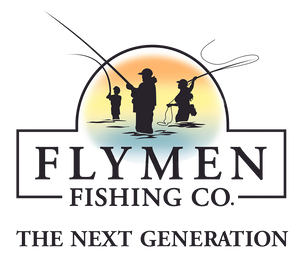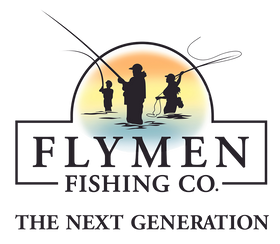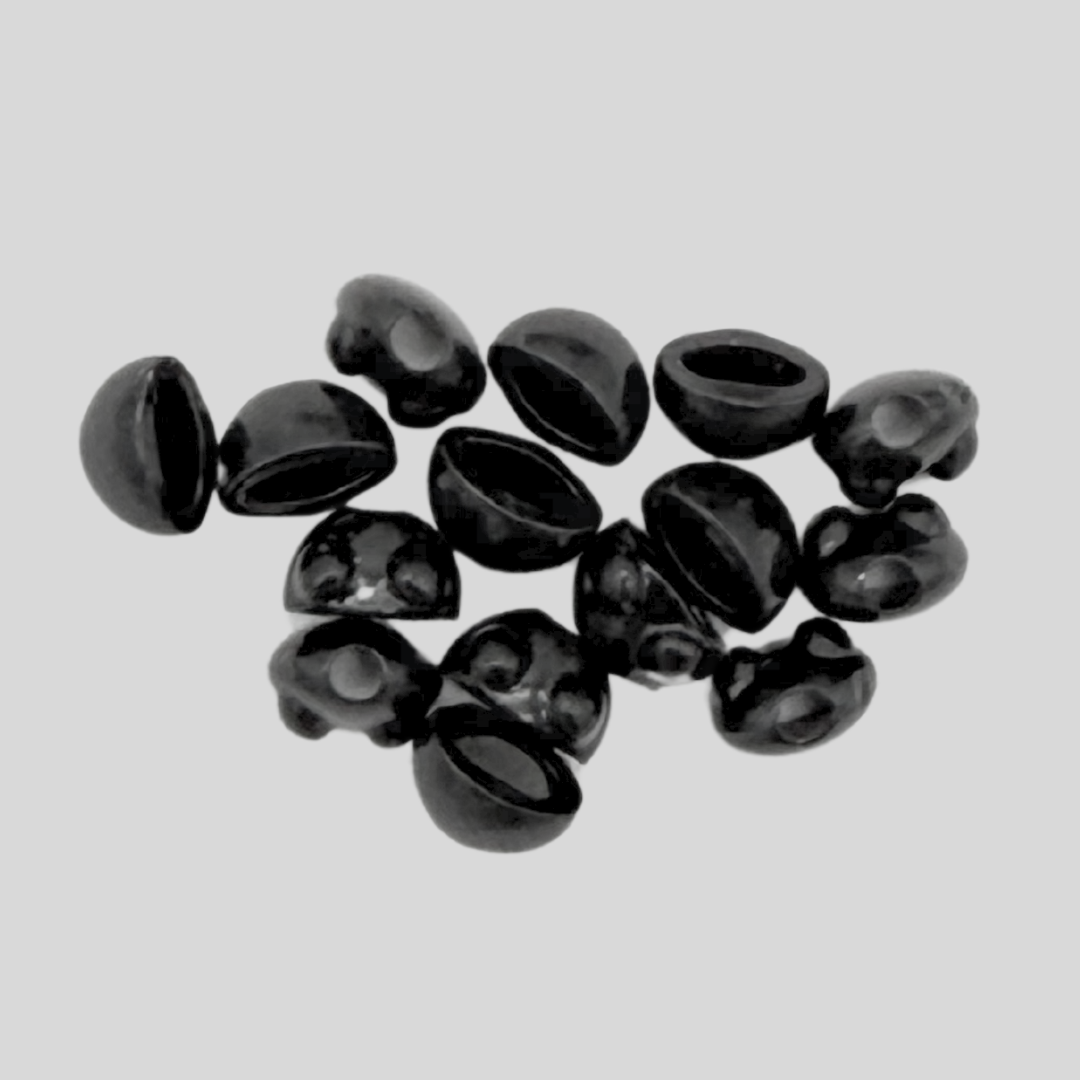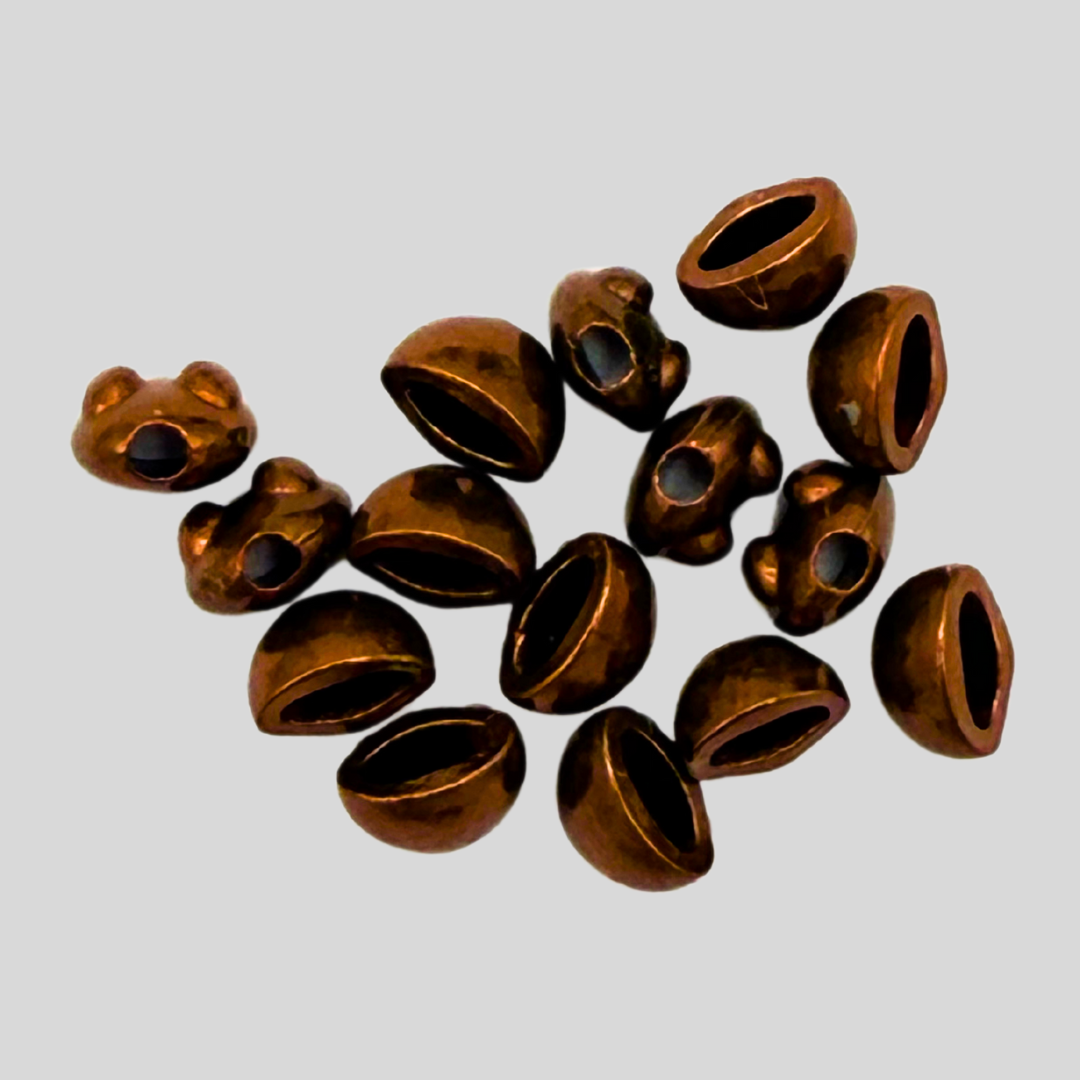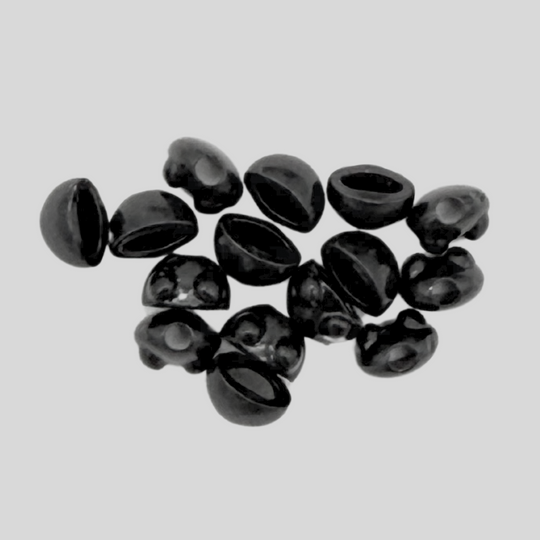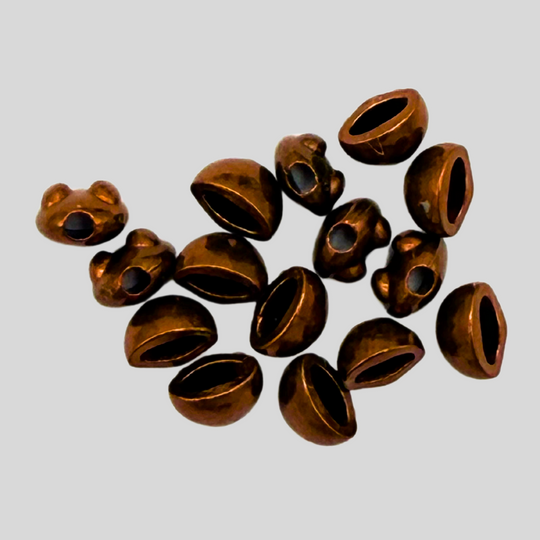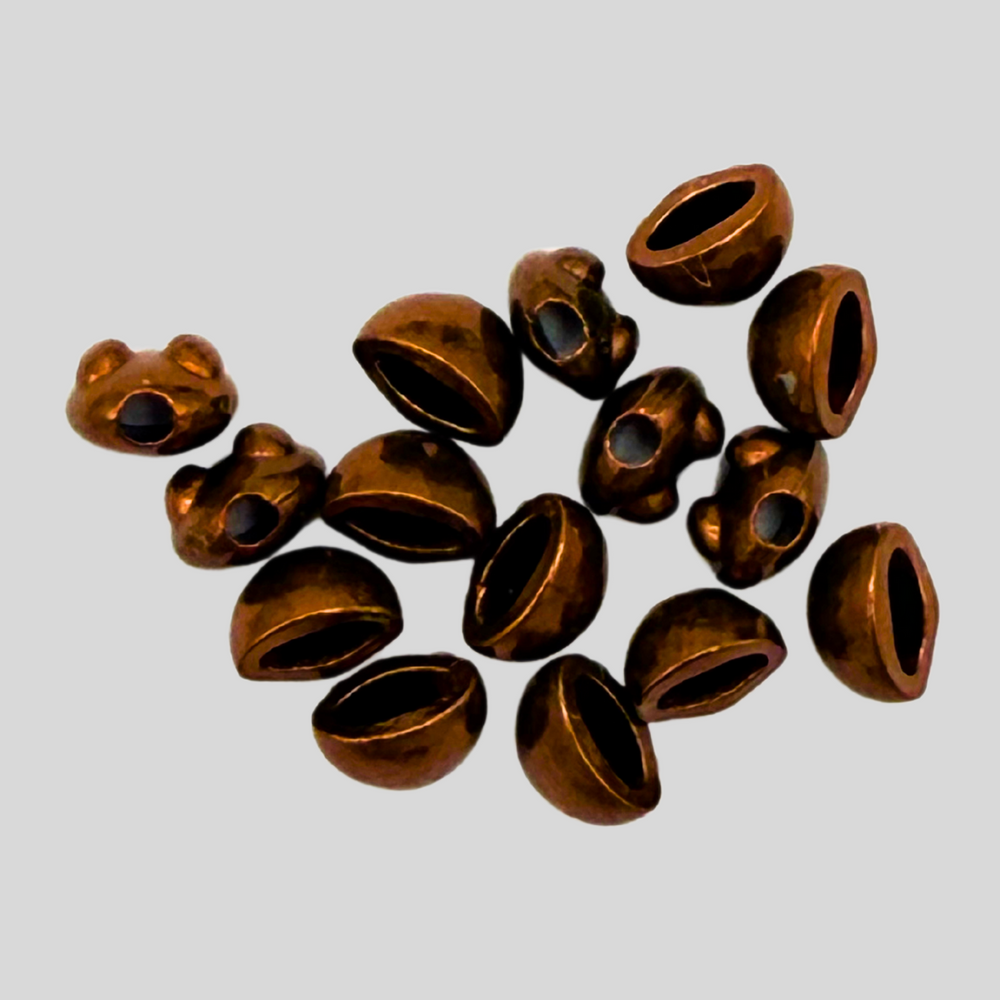Nymph-Head® Evolution™ Mayfly Clinger & Crawler tungsten beadheads
- Shipping calculated at checkout
- In stock, ready to ship
- Backordered, shipping soon
Move beyond the round bead. Tie fast-sinking mayfly clinger and crawler nymphs with anatomically molded heads for unmatched realism.
The Evolution Mayfly Clinger & Crawler tungsten beadhead is molded after the common mayfly clinger and crawler head profile -- flat and broad with prominent eyes and a distinctive, rounded front.
Evolution beadheads are simpler to use and have greater versatility than ordinary beads.
The holes are slightly bigger to fit a much larger range of hook styles and sizes. This extra space is designed for lead or lead-free wire to be used with the beadhead to create better body profiles. It also allows you to create neater flies by hiding excess materials, eliminating the ugly “thread collar” so typical of many beadhead nymph patterns
Take your tying and fishing to the next level by adding the final, previously impossible, element of realism to your mayfly clinger and crawler nymphs.
Quantity per pack: 15 beads
-
Realistic profile and proportion
Achieve the unique, flat and broad clinger crawler profile with an accurate head-to-body ratio.
Tungsten weight
100% pure tungsten for the fastest-sinking nymphs.
Natural colors
Brown, black, and olive with an anodized finish. -
Extra Small
Fits hook sizes #18, #16.
Roughly equivalent to 3/32" (2.4 mm) round beads.Small
Fits hook sizes #16, #14.
Roughly equivalent to 7/64" (2.8 mm) round beads.Medium
Large
Fits hook sizes #14, #12.
Roughly equivalent to 1/8" (3.2 mm) round beads.
Fits hook sizes #12, #10.
Roughly equivalent to 1/8" (3.2 mm) round beads.
Extra Large
Fits hook sizes #10, #8.
Roughly equivalent to 5/32" (4.0 mm) round beads. -
Q: What are mayfly clingers and crawlers?
A: Mayfly Clinger nymphs are commonly referred to as “flat heads” by entomologists and named for their habit of clinging to objects and surviving within the smooth boundary layer of water that surrounds underwater rocks and clutter. They sport flattened profiles, blunted broad heads and stout legs allowing them to hug the river bottom and survive in fast flowing rivers.
Mayfly Crawler nymphs are stocky and robust, creeping and crawling along the bottom as their name implies. Most of these flat headed crawler species live in flowing waters and move along the bottom using a laborious undulating motion.
Q: Will the Evolution beadhead help me tie better flies and catch more fish?
Both clingers and crawler nymphs have a very similar profile with a flat, broad head, prominent eyes, and a distinctive curved head profile.
A: Yes, it should in most fishing situations. In very fast, turbulent water such as rapids where trout are forced to make quick, instant “eating decisions” then the specific beadhead profile is less important. However, on rivers, streams, lakes and spring creeks where trout have more time to inspect and scrutinize your nymph, then any opportunity to improve your fly profile should be taken and the insect head and thorax area is a significant one. Think about the attention to detail and specific materials used by fly designers to produce perfect imitation wing-cases, thorax & abdomen colors, tails, body segmentation and other bug parts! Fly tying beads are no different and the Evolution beadhead range now enables the same level of detail not possible before. This contributes towards producing a better fly.
Another way to answer this question is to say you will not catch less fish! If you believe that weight is the only benefit of a tungsten bead, then the Evolution™ tungsten bead still provides that weight and you should expect to do the same as you usually do when you go fishing. However, we believe the combination of weight + profile + color gives added benefit and ultimately should allow you to produce a more effective nymph.
Q: Why are the holes at the back and front of the Evolution beadheads bigger than I am used to?
A: We created more space for a number of reasons:
We want the bead to fit a much wider range of hook styles and sizes. The bigger holes let you easily slip the bead around the bend of any hook. We also want to eliminate the ugly “thread collar” so typical of many beadhead nymph patterns. Creating more space inside the back of the bead allows you to bury any excess materials and your tying thread out of sight. Much neater flies!
We created more space to easily allow lead or lead-free wire to be used in conjunction with the beadhead to create better body profiles (and add more weight if needed). This is particularly relevant with the Stonefly and Mayfly Clinger & Crawler beadheads which have a flat, broad profile and tying in this way allows you to tie the right body profile and a heavier fly (see example photo below).
Q: How does the size and weight of an Evolution™ tungsten beadhead compare to that of a round bead?
A: As a general rule, they are about the same size and weight as a round tungsten bead you would use on a particular hook size. However, this will vary between the 4 different styles in the Evolution™ family. For example, the Stonefly bead (a big bug) is typically bigger/heaver and a Caddis (a small head on large body) is typically smaller/lighter than standard, round beads.
Q: Are you saying the Evolution beadhead gives the exact replica of every species of mayfly, caddis and stonefly?
A: No way! Entomologists please don’t get too excited! Given the vast diversity of aquatic insect life on the planet, Flymen Fishing Company is not claiming that every Evolution Beadhead reflects the exact size, shape, and color of all family’s within the mayfly, caddis and stonefly orders of insects! However, each insect order does for the most part tend to have their own distinctive head shape and we have managed to create a good “generalized” profile of the most common nymphs fly fishermen are trying to imitate. We believe the Evolution Beadhead does signify a considerable improvement over previous beads to date through its imitation of more accurate and proportionate natural insect head profiles.
